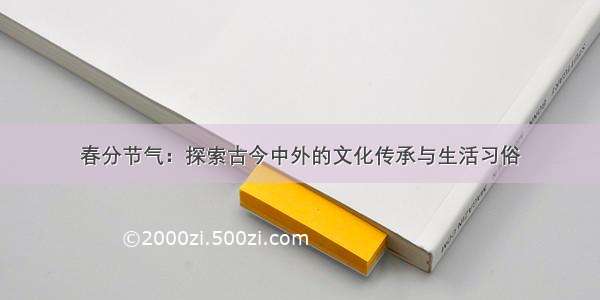
【导语】语法就是语言的规律。任何一种语言都有其内在逻辑性(logic)和规律(discipline)。学习一些基本的英语语法,对于快速掌握英语语言的规律,具有事半功倍的作用,尤其是对于一些为考试而编的语法题句的理解,很有作用。以下是整理的相关资料,希望对您有所帮助!
【篇一】
三位以上的数字怎么念
学过100百以内数字的念法后,我们来看看3位以上的数字又该如何念吧。其实除了 thousand(千), million(百万), billion(十亿) 这几个是新词,其他就是把之前所学的拼凑起来罢了,但是数字一多人就容易犯晕,所以大家要细心一点哟!
一、3-4位数的读法
先说几百,后加and,再加末两位数或末位数。
202读作:two hundred and two
234读作:two hundred and thirty-four
1,234读作:one thousand two hundred and thirty-four
注意:这里的 hundred 不能加复数后缀s。
二、5位数以上的读法
汉语和英语数字表达的方式不同。汉语是个,十,百,千,万,十万,百万,千万,亿,十亿,也就是以十的倍数来表示;而英语则是在数字超过千以后,以千(thousand)的倍数来表达的。如一万是十千,即 ten thousand;十万是百千,即 hundred thousand,直至百万,million。百万以上的数字则用百万的倍数表达;如千万是十百万,即 ten million;亿是百百万,即 hundred million,直至十亿,billion。 所以英文表达数字时可以从右往左,三位一逗号,逗号从右往左分别对应的是:thousand, million, billion, etc。
例如:1207210472,可以先处理成1,207,210,472,这样这个数字用英文完整的读作:one billion two hundred and seven million two hundred and ten thousand four hundred and seven-two
注意: 这里的 thousand, million, billion 的后面也不能加复数后缀s。
根据这个规律,大家来试着练习以下几个数字的读法吧:
11,234
eleven thousand two hundred and thirty-four
155,721
one hundred and fifty-five thousand, seven hundred and twenty-one
6,155,702
six million, one hundred and fifty-five thousand, seven hundred and two
26,000,008
twenty-six million and eight
326,414,718
three hundred and twenty-six million, four hundred and fourteen thousand, seven hundred and eighteen
4,302,000,000
four billion three hundred and two million
【篇二】
形容词比较级和级
形容词是修饰名词、表示名词属性的词。学习形容词,很重要的一部分内容就是形容词的比较级、级。关于它们的构成,之前已经有所归纳,请看形容词比较级的构成方法。
形容词比较级的用法
一、在than句中:
He is taller than I.(口语中常作:He is taller than me.)
他比我高。
He is two heads taller than I.
他比我高出两个头。
二、在which, or?句中,表示两者比较:
Which is bigger, the sun or the moon?
太阳和月亮,哪一个更大?
三、比较级+and+比较级:
Its getting darker and darker.
天越来越黑了。
He is getting more and more interested in sports.
他对体育越来越感兴趣。
四、The more, the more:
The more you eat, the more you want.
你越吃越想要。
五、形容词比较级前可受 much, far, a lot, still, no, a little, even, any 修饰,表示超出的程度:
We have a much better life now.
我们现在的日子好得多了。
The buildings look far uglier in London than here.
伦敦的建筑比这儿的难看得多。
This story is even more interesting than that one.
这个故事比那个更有趣。
I made a lot more mistakes than you (did)。
我犯的错误比你多多了。
Your cake is a little larger than mine.
你的蛋糕比我的大一点儿。
Its still colder today.
今天更冷一些。
-Have you any more? -Oh, sorry, no more.
-你还有吗?-哦,对不起,没有了。
Shes no better yet.
【篇三】
farther与further
farther 与further:
1)两者均可用来指实际的距离,既空间上的距离。例:
We cannot go any farther/further without a rest. 不休息一下的话就走不动了。
The service desk is at the farther/further end of the hall. 咨询处在大厅稍往里的地方。
2)further还可用于比喻意义上的距离或深度,如时间、程度和数量等,表示更多,更进一步,是additional的另一种说法。例:
We intend to stay for a further two months. 我们打算再停留两个月。
The problem will be further discussed at the class meeting. 这个问题在班会上还将进一步讨论。
I may be able to give you some further information about it. 关于这个问题,我还可以给你一些信息。
(注:其实以前这两个词并没有区别,就连韦氏词典上也说它们是可以互相替换的。但是后来一些语法学家将它们的用法区分开来,至于有多少人恪守着这一规定就不得而知了所以说大家在考试时需要记住这些,但是到了其他随意场合那就看自己的喜好吧)
















